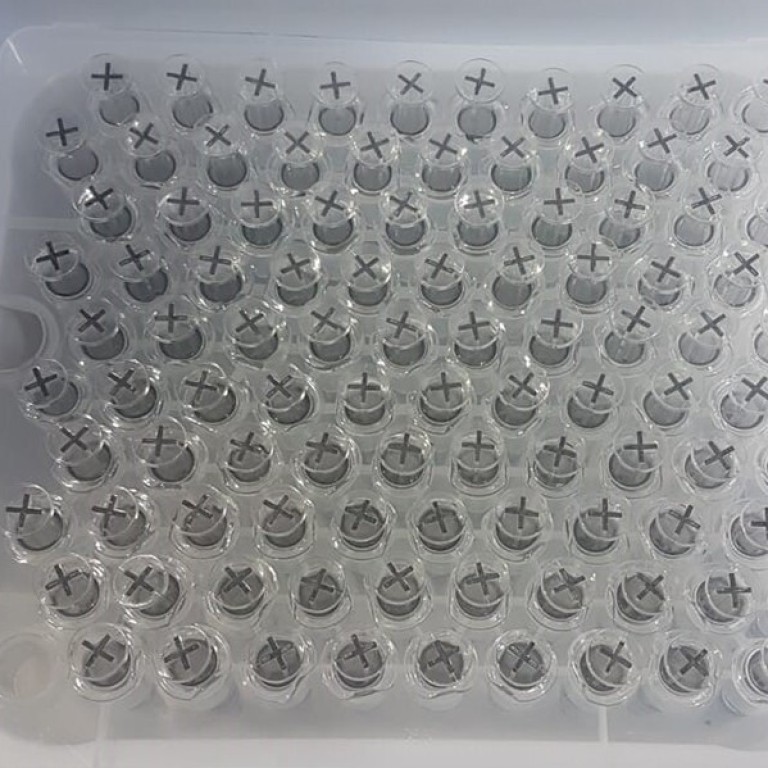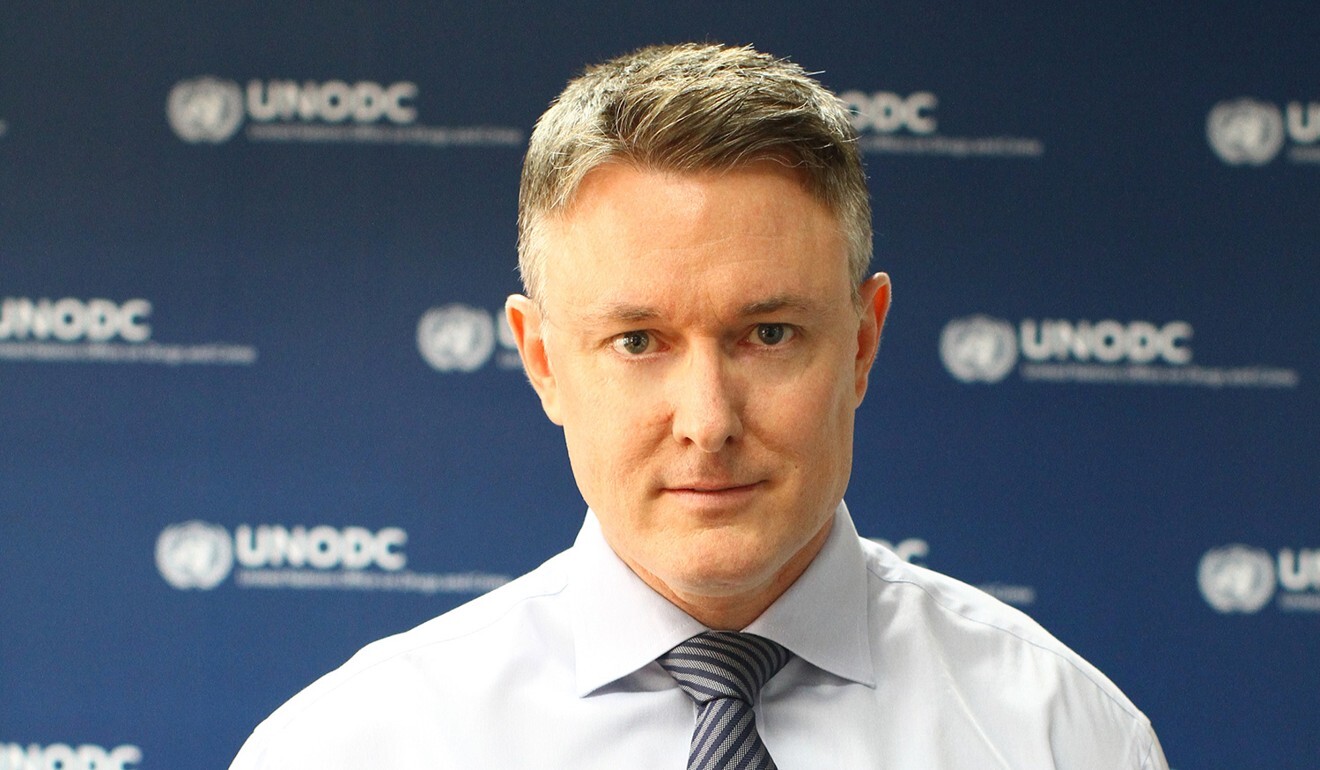
Do fake Covid-19 vaccine arrests in China herald global crime wave?
- Interpol warns criminals are trying to scale up trade in counterfeit jabs across the world
- Scams include dark web sales and criminals selling genuine vials to be filled with harmless or potentially dangerous substances
“This has created a level of desperation in communities across the world and that means criminals will use their predatory, parasitic mentalities to make money from the fear,” said Stephen Kavanagh, executive director of Interpol’s police services.
“If the profits are there and the [vaccine] roll-out programme seems to stutter in certain countries, there is little doubt that criminals today are trying to scale up their production of fake vaccines,” he said, noting the agency had already seen examples of fake vaccines around the world.
Some of these have been made public. Mexican authorities in February arrested six people for selling fake Pfizer vaccines at a private clinic. South African authorities also made several arrests earlier this year after discovering more than 2,000 fake doses in a warehouse linked to the Chinese operation. Another scam in Poland involved fake Pfizer doses filled with an anti-ageing treatment, according to a report in The Wall Street Journal.
Kavanagh also pointed to instances of small-scale labs in Southeast Asia producing fake vaccines, and movements of vials into South America. But he said Interpol, which shares crime data and coordinates between 194 member countries, had yet to see large-scale, industrial production of fake doses in the tens or hundreds of thousands.
The most important thing for the public to do was rely on health authorities for access to doses, Kavanaugh said.
Jeremy Douglas, regional representative of the United Nations Office on Drugs and Crime for Southeast Asia and the Pacific, said it was difficult to know the scale of such activity, but his office had been advising governments on the potential for groups to make and sell fake vaccines, and the diversion of real vaccines from legitimate supply chains.
Chinese trio arrested over fake coronavirus vaccines in South Africa
Douglas pointed to dark web marketplaces, accessed via special software, where listings for doses purporting to be from approved vaccine makers such as Pfizer, Sinovac and Johnson & Johnson were readily accessible, selling anywhere from tens to thousands of dollars.
“We’re not sure if these are legitimate or fake,” he said.
Kavanagh said fake vaccination documents and empty vials from genuine doses for use in counterfeit products were also being sold online, which was a big concern for Interpol.
The organisation is working with pharmaceutical companies to share information about how they track, verify and ship vaccines with police and health agencies so they can recognise fake or repurposed vials.
“The trouble is, when you have a genuine vial that turns up with what looks to be authentic labelling but is filled with something that is innocuous or dangerous, then people are more inclined to believe it,” he said.

Douglas said the trade had the potential to build on an established illicit trade in pharmaceuticals, which could often be linked to countries that already had large chemical and pharmaceutical industries.
“If [doses] are diverted out of industry, they are going to be coming from the places with the industry. That’s going to mean India, China, potentially parts of Southeast Asia. But you’re also going to see a lot of counterfeits coming out of particular places, and the history of knock-off medications is China and India, and increasingly Southeast Asia,” he said.
Roderic Broadhurst, a professor of criminology at Australian National University, who has been tracking the sale of Covid-19 related products across the dark web, said he would not completely rule out that some doses could be diverted from legitimate channels, especially as some operators trafficking in medicines in online marketplaces “have supply chain connections with pharmaceutical producers or suppliers at very significant levels”.
Not just drugs and child porn: what else you can find on the dark web
Broadhurst was part of a team which last month released a report documenting hundreds of listings for Covid-19 related products on the dark web. Vaccines made up 10 per cent of the listings, according to the report, which was based on what was available searching 12 online marketplaces on a single day last month.
But major vaccine companies have taken significant steps to secure supply chains for Covid-19 doses, and even if a vaccine was diverted from a legitimate supply chain, there is no guarantee it has been stored and transported following the strict procedures needed to maintain its efficacy.
“There are no proven vaccines currently for sale online. Don’t think that there are,” Kavanagh said.
Cracking down on vaccine-related crime was about getting that message out to the public and continuing to coordinate between pharmaceutical companies, health agencies and police, he said.
“This is one of those issues that seems to be unifying the authorities. Nobody wants to see fake vaccines out there.”

